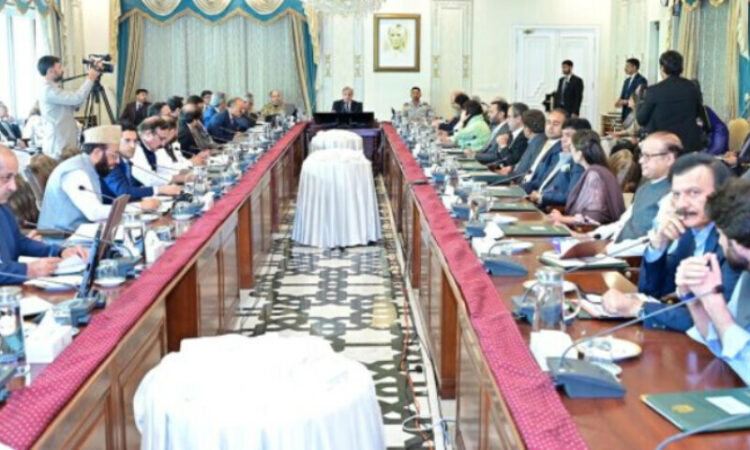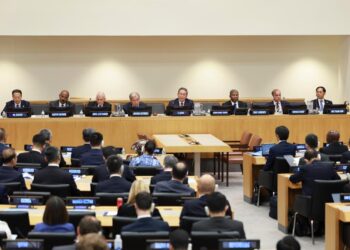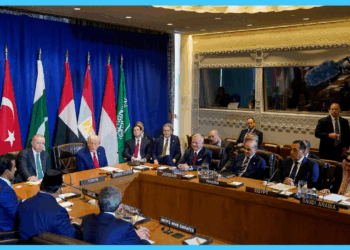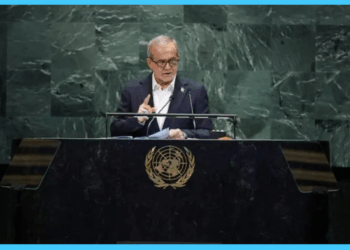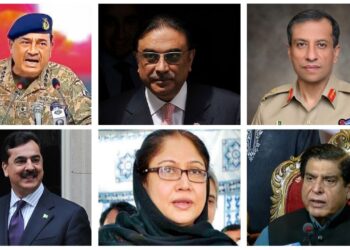ISLAMABAD; In a meeting chaired by Prime Minister Shehbaz Sharif, the federal cabinet on Wednesday approved two pivotal national initiatives — the National Artificial Intelligence (AI) Policy 2025 and the Hajj Policy 2026 — setting ambitious directions for Pakistan’s technological and religious governance landscape.
National AI Policy 2025: Empowering the Future
The AI Policy 2025 seeks to transform Pakistan into a regional AI powerhouse by building a robust ecosystem that prioritises human capital, innovation, security, and inclusion. The policy aims to train one million AI professionals by 2030, develop 1,000 indigenous AI products, and implement 50,000 AI-driven civic projects.
PM Shehbaz termed the youth as “Pakistan’s greatest asset,” vowing to provide them with advanced education, skills, and equal opportunities. The policy includes 3,000 annual scholarships and support for 1,000 AI research projects, while ensuring access for women and persons with disabilities through inclusive education and financing models.
A high-powered AI Council, backed by a national master plan and action matrix, will oversee policy implementation. Dedicated AI Innovation and Venture Funds will be set up to attract private investment, with the Ministry of IT playing a lead role.
The prime minister applauded the ministry’s efforts, asserting, “AI will not only modernise our economy but enhance productivity in agriculture, governance, public services, and more.”
This move builds on recent developments, including the launch of Pakistan’s first AI-powered cybersecurity programme by SOCByte and the Supreme Court’s emphasis on using AI to reform judicial efficiency.
Hajj Policy 2026: Digitising the Sacred Journey
Simultaneously, the cabinet approved the Hajj Policy 2026, mandating full digitisation of the pilgrimage process to improve transparency, monitoring, and service quality.
Under the new framework, 70% of pilgrims will be accommodated under the government scheme and 30% through private operators — now subject to strict regulatory oversight. Private firms that failed to deliver in 2024 must facilitate the same pilgrims in 2026 at previous rates.
Digital wristbands, mobile apps, SIM cards, and real-time tracking systems will be introduced to monitor services, while a first-come, first-served selection process and mandatory Saudi-approved vaccinations will ensure efficiency and safety.
A third-party monitoring mechanism will oversee both public and private operations. The policy also introduces a financial eligibility requirement for private operators and reserves 1,000 seats for hardship cases.
The Ministry of IT and the Ministry of Religious Affairs will jointly implement the digital transformation. Islamabad and Karachi airports will offer the “Road to Makkah” facility, and emergency response teams and training modules for pilgrims will be part of the upgraded support system.
Federal Minister for Religious Affairs Sardar Muhammad Yousaf stated that improved financial oversight, grievance redressal systems, and strict eligibility checks for private companies would eliminate past irregularities. Children under 12 will not be allowed to perform Hajj, and the Hajj Nazim Scheme will continue as before.
The prime minister stressed that quality services for pilgrims are non-negotiable: “Ensuring comfort, transparency, and timely support for every pilgrim is our foremost duty.”
Both policies, one rooted in cutting-edge innovation and the other in religious facilitation, underscore the government’s multi-pronged commitment to progress, inclusivity, and accountability across sectors.








